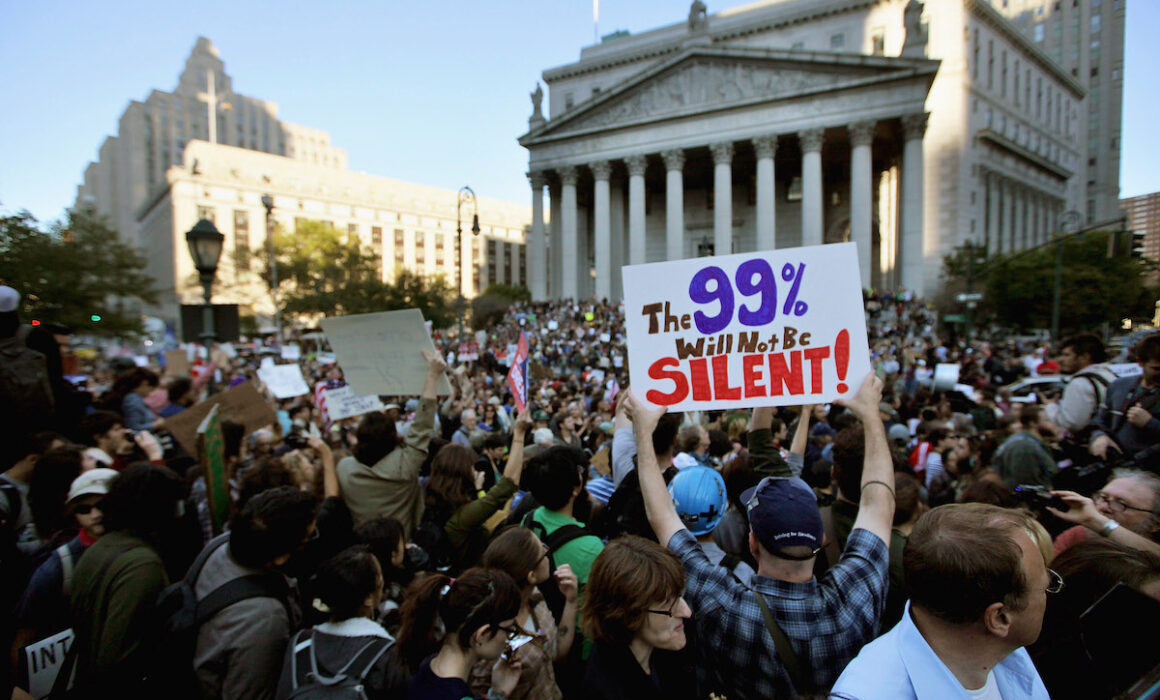How a New Economics Went Mainstream
November 17, 2023
A sea change in policymaking, and the work that remains.
The Roosevelt Rundown features our top stories of the week.

(Photo by Mario Tama/Getty Images)
A Sea Change in Economic Thinking
Over the last decade, and particularly in the last three years, we’ve witnessed shifts in economic thinking and landmark policy wins few could have expected—from the American Rescue Plan’s focus on full employment to the Inflation Reduction Act’s historic climate investments.
To build on the promise of this moment, we need to understand how we got here, and what remains to be done.
In Sea Change: How a New Economics Went Mainstream, Felicia Wong, Suzanne Kahn, Mike Konczal, and Matt Hughes offer Roosevelt’s vantage point, taking a deep-dive look at the people, institutions, and movements that helped make today’s progress possible.
“[W]e have seen a new approach take shape—not only individual policies, but a broader worldview shift that seeks to rebalance power, invest in people and places, and shape markets in the public interest,” they write.
“Whether or not this new approach marks a long-lasting shift remains to be determined, and whether this shift goes far enough depends on the outcome of politics and policy fights ahead.”
Read more in Sea Change, and check out David Leonhardt’s exclusive about the report in the New York Times.
The Fight for a New Economic Model
To mark yesterday’s Sea Change release, Roosevelt hosted a webcast conversation between Wong and Franklin Foer, staff writer at The Atlantic and author of The Last Politician: Inside Joe Biden’s White House and the Struggle for America’s Future.
“We started talking maybe eight years ago . . . and I was drawn to the Roosevelt Institute, and I sought you out because I knew that you were at the forefront of thinking through what a post-neoliberal future might look like,” Foer said.
“We live in these times that are both so terrifying, but there’s also this exciting new possibility that has been opened up . . . where morals and the shapes of markets and the rights of workers and equity questions began to have a place alongside these other questions that had shaped the way that we thought about capitalism.”
Inflation Is Down. Don’t Thank the Fed.
Inflation has fallen dramatically since its peak in June 2022.
“Of course, central bankers will pat themselves on the back. But they had little role in the recent disinflation,” Roosevelt Chief Economist Joseph Stiglitz writes in a new piece.
“Raising interest rates did not address the problem we faced: supply-side and demand-shift inflation. If anything, disinflation has happened despite central banks’ actions, not because of them.”
Read more in “A Victory Lap for the Transitory Inflation Team.”
What We’re Talking About
Inflation is declining with unemployment low, yet that good news isn’t translating into better consumer feelings about the economy.@mtkonczal joins @EmilyStewartM & @jonquilynhill on @voxdotcom’s The Weeds podcast to discuss why the "vibes" are bad: https://t.co/jEUOEGXkKJ
— Roosevelt Institute (@rooseveltinst) November 15, 2023
What We’re Reading and Listening to
The Promise and the Limits of the UAW Deals – NPR
Lina Khan Has a Warning for the World of Private Equity [podcast] – Bloomberg’s Odd Lots
Social Change Movements Are Winning Big, Thanks to Rigorous Strategy – Newsweek
Note: The Roosevelt Rundown will be on hiatus until December 1.